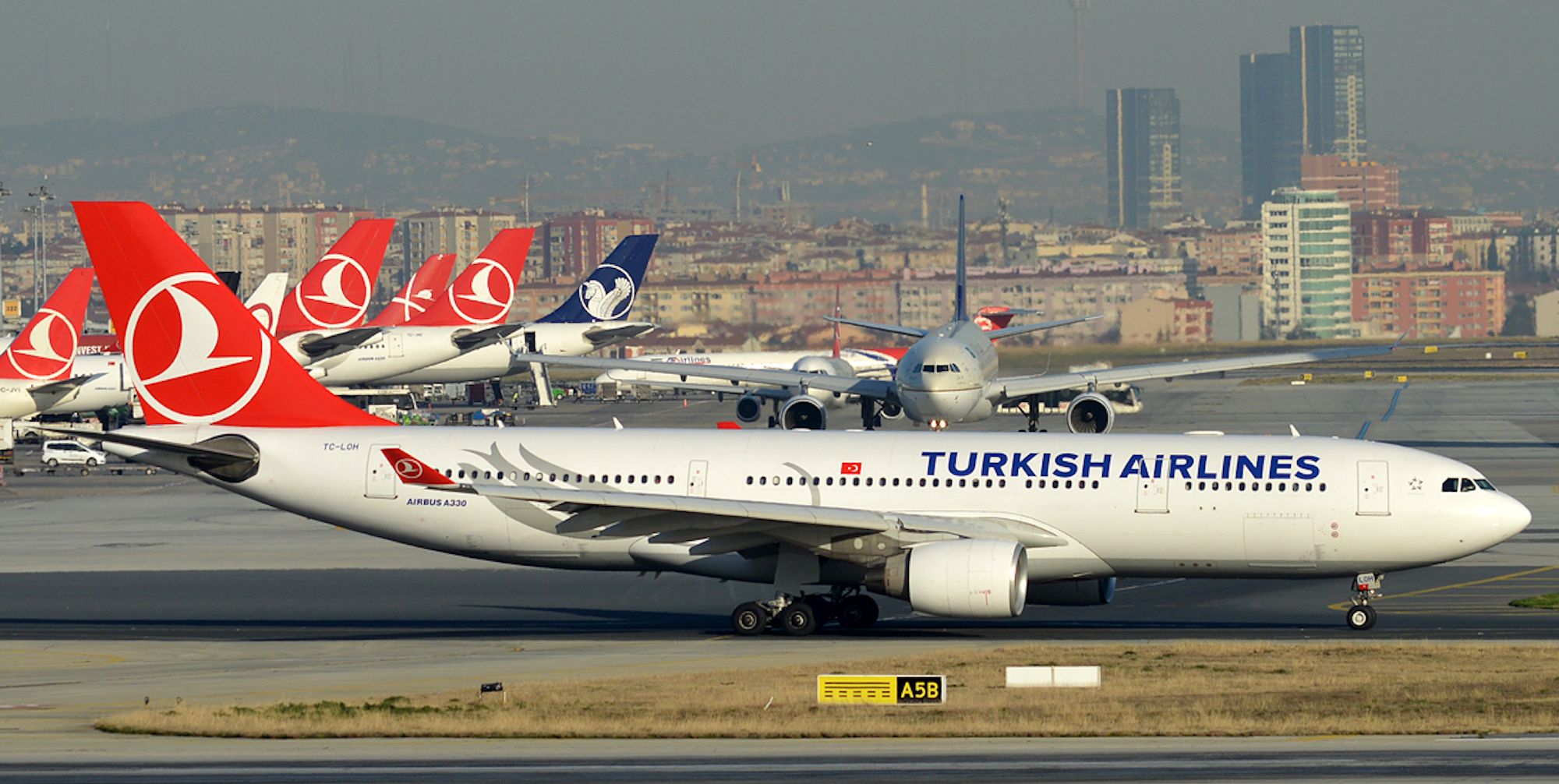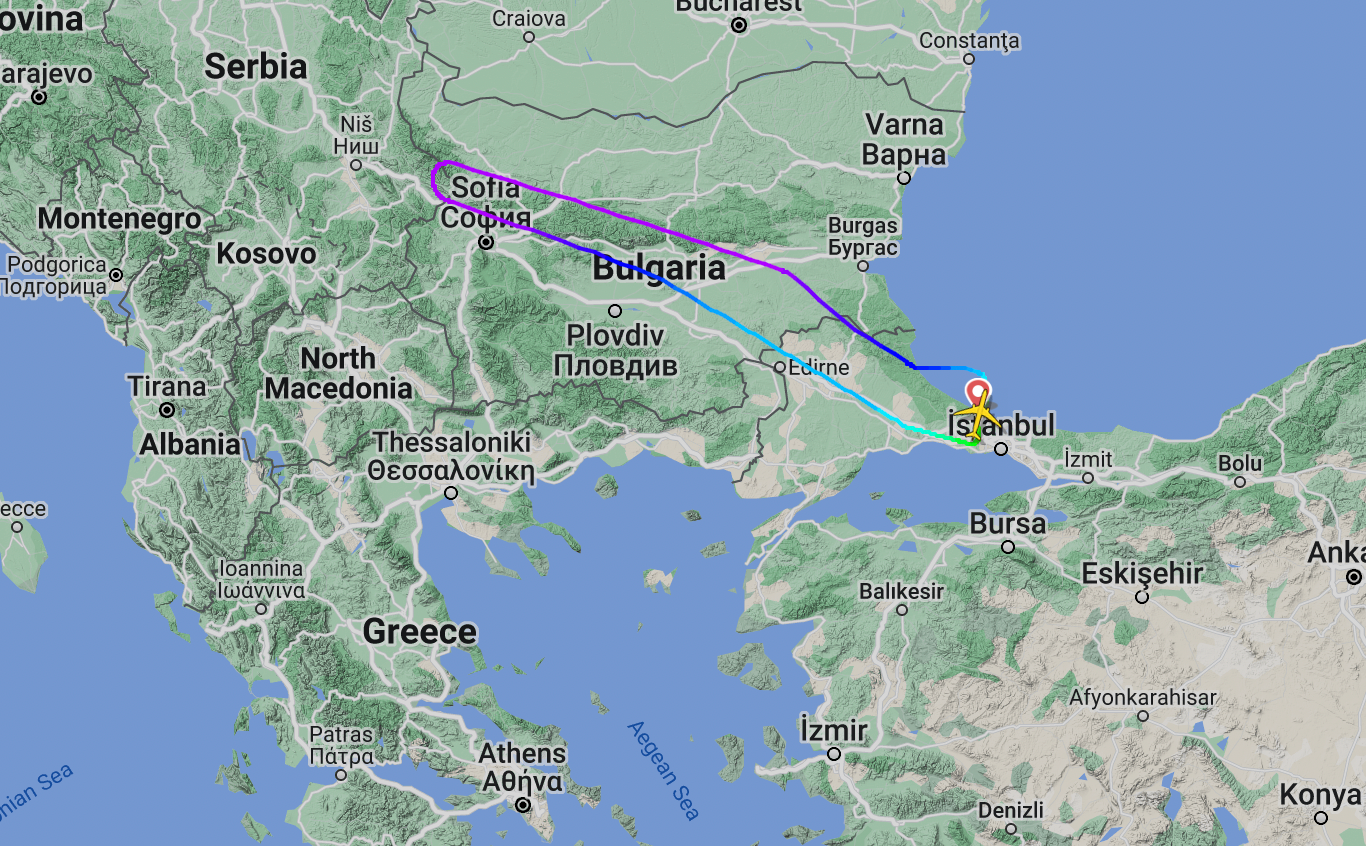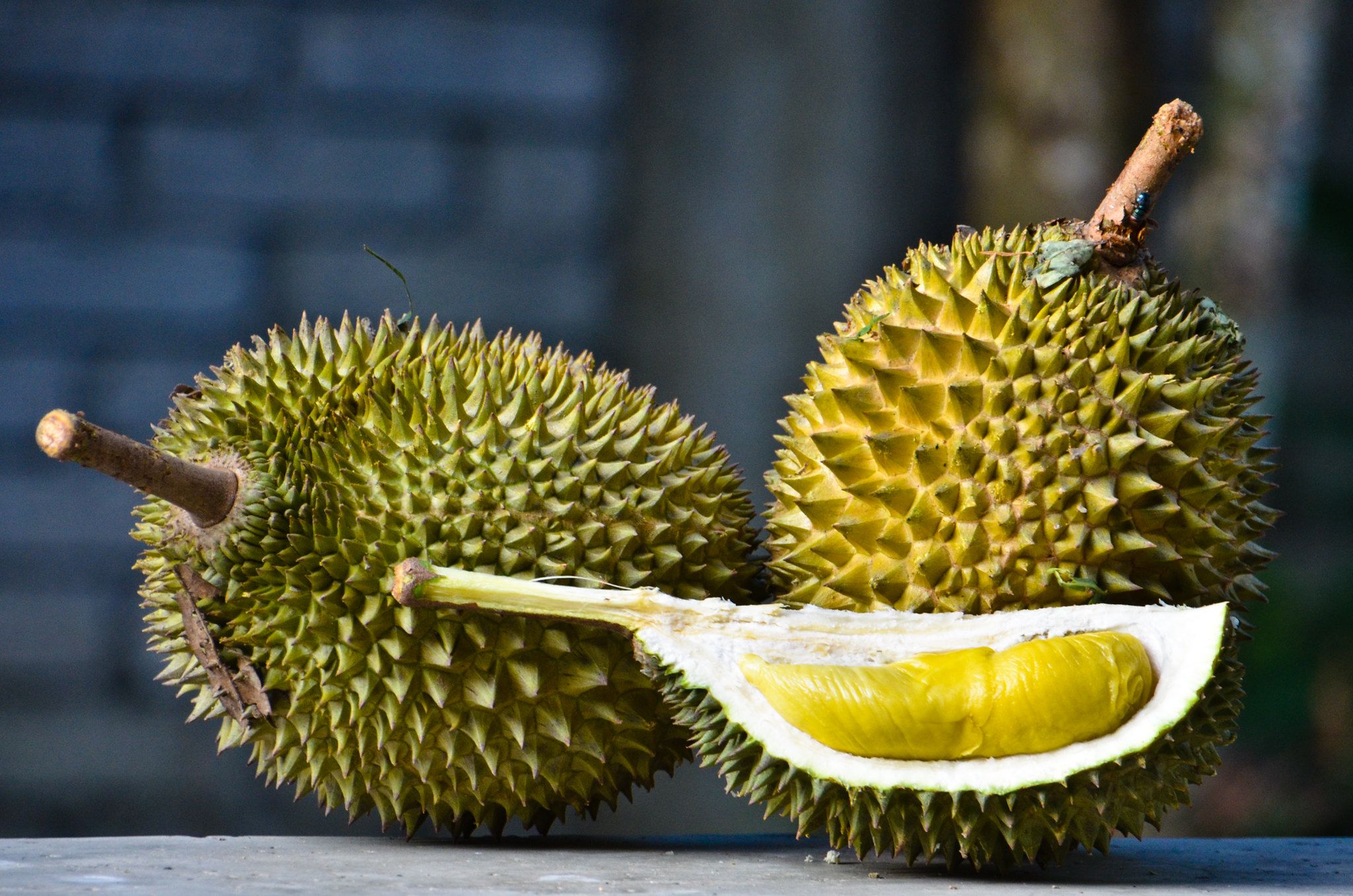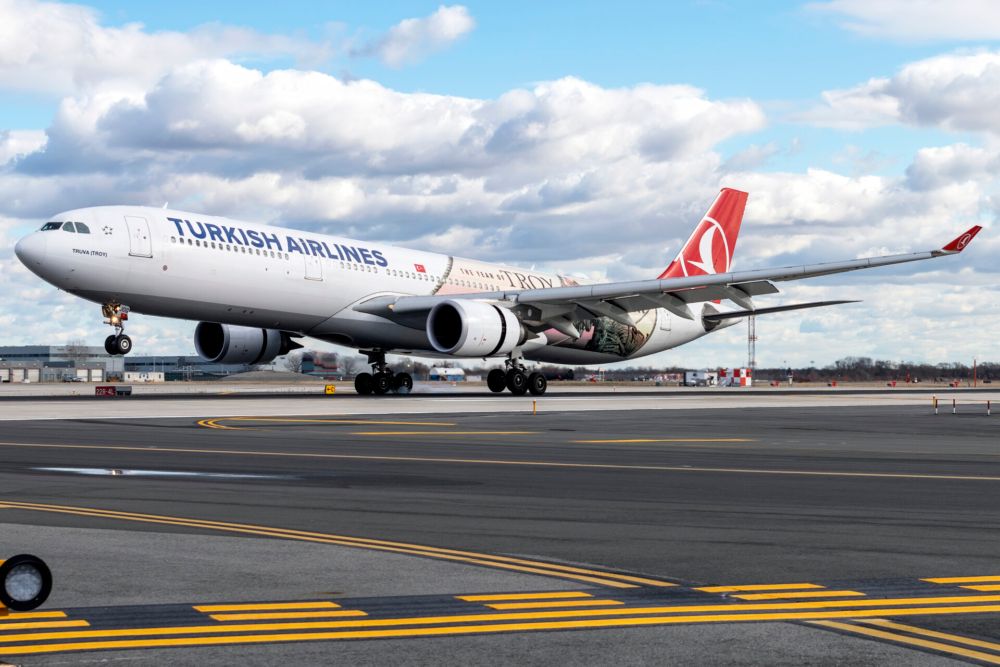On March 5th, a Turkish Airlines Airbus A330-200 flying from Istanbul to Barcelona was forced to return to its origin airport after a pungent odor was picked up, and cargo alarm triggered onboard the departing aircraft. Upon inspection, it was determined that the 'hazard' onboard was the southeast Asian fruit known as durian.
Incident details
While anyone familiar with the smell of durian will know that it has the power to clear a room and cause discomfort to anyone in its vicinity, we're learning that it also has the power to trigger sensors designed to detect dangerous gasses.
On March 5th, a Turkish Airlines Airbus A330-200, registered TC-LOH was flying from Istanbul to Barcelona as flight TK1855. According to The Aviation Herald, the jet was at an altitude of FL380, and positioned about 300nm northwest of Istanbul (in Bulgarian Airspace), when the decision was made to turn around.
The reason for diverting and returning to Istanbul was due to what was described as "a pungent odor" onboard the A330, followed by a cargo smoke indication. Not knowing the exact cause of the smell or the alarm, the crew descended to FL140 before safely landing at Istanbul airport's runway 35R. From take-off to landing, the aborted flight took two hours.
Inspecting the aircraft and the cargo bay where the sensor was triggered, it was determined that the cause of both anomalies was durian - a fruit that is well known for its awful odor, particularly when ripe. With the mystery solved, Turkish Airlines appears to have reassigned the flight to the A330-200 registered TC-JIR. This aircraft took off from Istanbul at 20:50 local time, landing in Barcelona at 22:09.
Get all the latest aviation news right here on Simple Flying.
How could fruit trigger a sensor?
Those who have smelled durian before may not be surprised that the fruit could have such an effect on sensors designed to pick up dangerous gasses. After all, cities across Southeast Asia will have "no durian" signs posted on public transport, hotels, and other public or semi-public areas.
According to the American Chemical Society, the smell of durian can be replicated by combining two compounds. These are named ethyl (2S)-2-methylbutanoate and 1-(ethylsulfanyl)ethane-1-thiol. A safety data sheet from ThermoFisher Scientific notes that Ethyl 2-methylbutanoate in either liquid or vapor form is considered flammable. Additionally, durian produce a sulfurous odor as they ripen. With sulfur powder considered highly flammable and easy to ignite, it's no wonder why a sensor may have picked up dangerous gasses.
It's safe to say that this fruit is an acquired taste, more likely to be enjoyed by those who grew up with it from an early age. And while it's most certainly a niche commodity outside of Southeast Asia, there are indeed supermarkets around the world importing the fruit - selling it at a premium. Thus, with a storage life of just three to five weeks, air transportation is the best way for the fruit to travel long distances.
While many airlines aren't likely to specifically name and ban durian from being carried onboard, any attempt to enjoy this fruit inside an aircraft cabin is sure to offend most of your fellow passengers and result in flight crew intervention.
What do you think of this incident? Have you tried durian before? Share your thoughts and experiences by leaving a comment!
Sources: FlightRadar24.com, The Aviation Herald, American Chemical Society, Cargo Handbook




